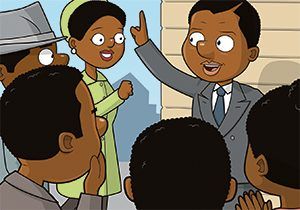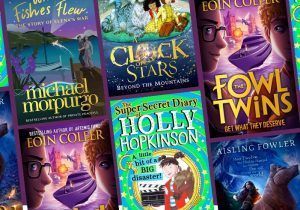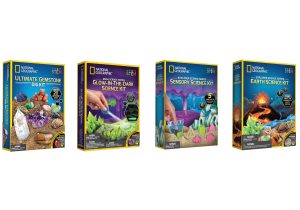
Florence Nightingale Primary Resource
Learn all about the life and work of the world’s most famous nurse…
This primary resource introduces children to Florence Nightingale in a fun and engaging comic. Learn about how this remarkable women changed the face of modern nursing. What role did Florence Nightingale play in the Crimean War? Why was she known as the ‘Lady with the Lamp’? How did Florence Nightingale change attitudes to health and nursing?
In our National Geographic Kids primary resource sheet, pupils will learn about the life and work of Florence Nightingale, and how she became an important figure in the history of modern nursing.
The teaching resource can be used as a printed handout for each pupil to read themselves, or for display on the interactive whiteboard, as part of a whole class reading exercise.
Activity: Encourage pupils to use their arts and crafts skills to make lamps – they could make paper lamps, or use jars and tea lights to make candle lamps. To ensure the children understand the historical context of their activity, have them include images, designs, patterns and words that reflect the life and work of Florence Nightingale.
N.B. The following information for mapping the resource documents to the school curriculum is specifically tailored to the English National Curriculum and Scottish Curriculum for Excellence. We are currently working to bring specifically tailored curriculum resource links for our other territories; including South Africa, Australia and New Zealand. If you have any queries about our upcoming curriculum resource links, please email: schools@ngkids.co.uk
This History primary resource assists with teaching the following History objectives from the National Curriculum:
- Gain historical perspective by placing their growing knowledge into different contexts, understanding the connections between local, regional, national and international history; between cultural, economic, military, political, religious and social history; and between short- and long-term timescales.
National Curriculum Key Stage 1 History objective:
- Pupils should be taught: significant historical events, people and places in their own locality.
- Pupils should be taught: the lives of significant individuals in the past who have contributed to national and international achievements.
National Curriculum Key Stage 1 History objective:
- Pupils should be taught a study of an aspect or theme in British history that extends pupils’ chronological knowledge beyond 1066 that us significant in the locality.
This primary resource also assists with teaching the following English objectives from the National Curriculum:
- Comprehension skills develop through pupils’ experience of high-quality discussion with the teacher, as well as from reading and discussing a range of stories, poems and non-fiction. All pupils must be encouraged to read widely across both fiction and non-fiction to develop their knowledge of themselves and the world in which they live, to establish an appreciation and love of reading, and to gain knowledge across the curriculum
This History primary resource assists with teaching the following Social Studies First level objective from the Scottish Curriculum for Excellence:
- Having selected a significant individual from the past, I can contribute to a discussion on the influence of their actions, then and since
Scottish Curriculum for Excellence Second level Social Studies objective:
- I can use primary and secondary sources selectively to research events in the past.
- I can discuss why people and events from a particular time in the past were important, placing them within a historical sequence
- I can compare and contrast a society in the past with my own and contribute to a discussion of the similarities and differences
Scottish Curriculum for Excellence Third level Social Studies objective:
- I can describe the factors contributing to a major social, political or economic change in the past and can assess the impact on people’s lives.
- I can discuss the motives of those involved in a significant turning point in the past and assess the consequences it had then and since.
Scottish Curriculum for Excellence Fourth level Social Studies objective:
- By studying groups in past societies who experienced inequality, I can explain the reasons for the inequality and evaluate how groups or individuals addressed it.
- Having critically analysed a significant historical event, I can assess the relative importance of factors contributing to the event.
Download primary resource
More Like

The life of Nelson Mandela

FIND YOUR PERFECT BOOK!

SUPER-SIZED SCIENCE KITS









LEAVE A COMMENT
THANK YOU
Your comment will be checked and approved shortly.
WELL DONE,
YOUR COMMENT
HAS BEEN ADDED!
COMMENTS
CUSTOMIZE YOUR AVATAR